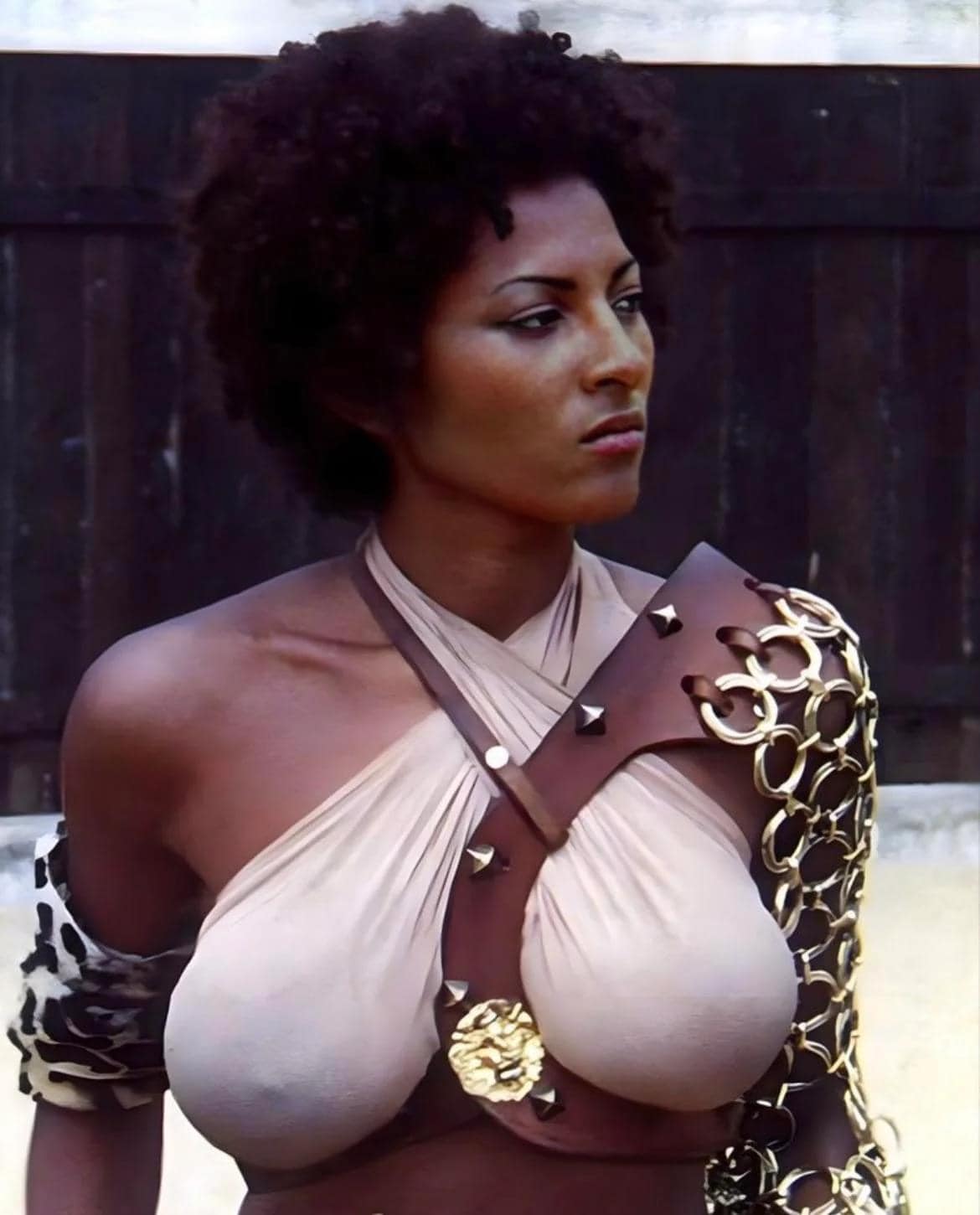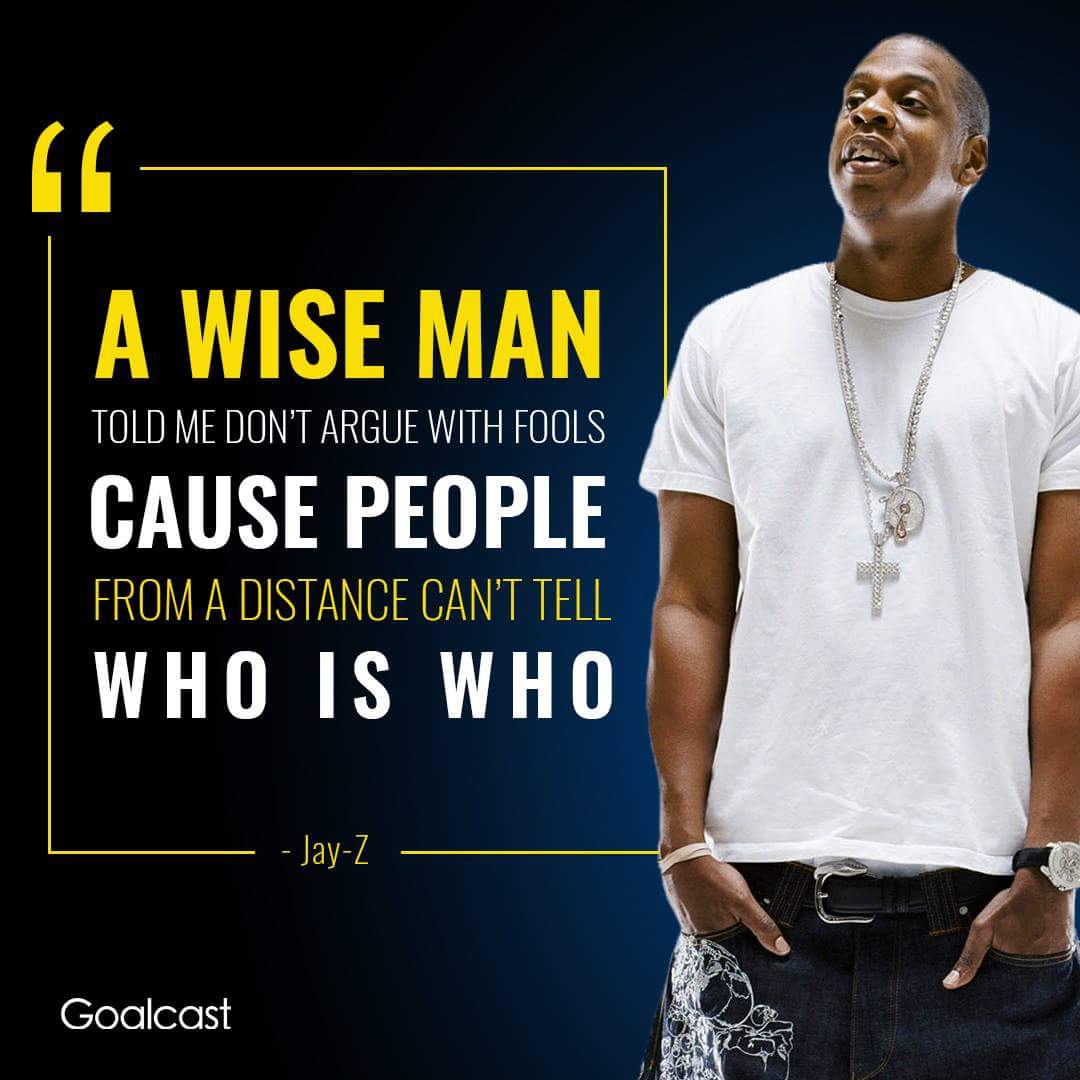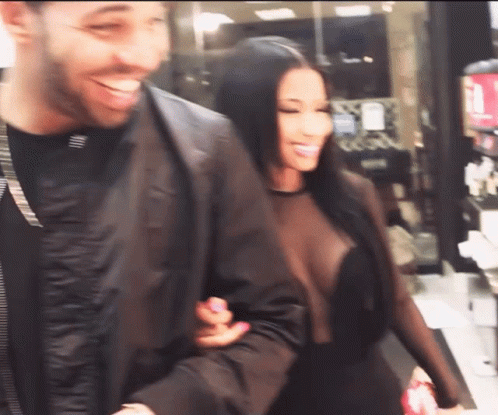Install the app
How to install the app on iOS
Follow along with the video below to see how to install our site as a web app on your home screen.
Note: This feature may not be available in some browsers.
You are using an out of date browser. It may not display this or other websites correctly.
You should upgrade or use an alternative browser.
You should upgrade or use an alternative browser.
Black Star Power... a celebration of black excellence thread on-going
- Thread starter playahaitian
- Start date
-
- Tags
- black star power power
Last edited:
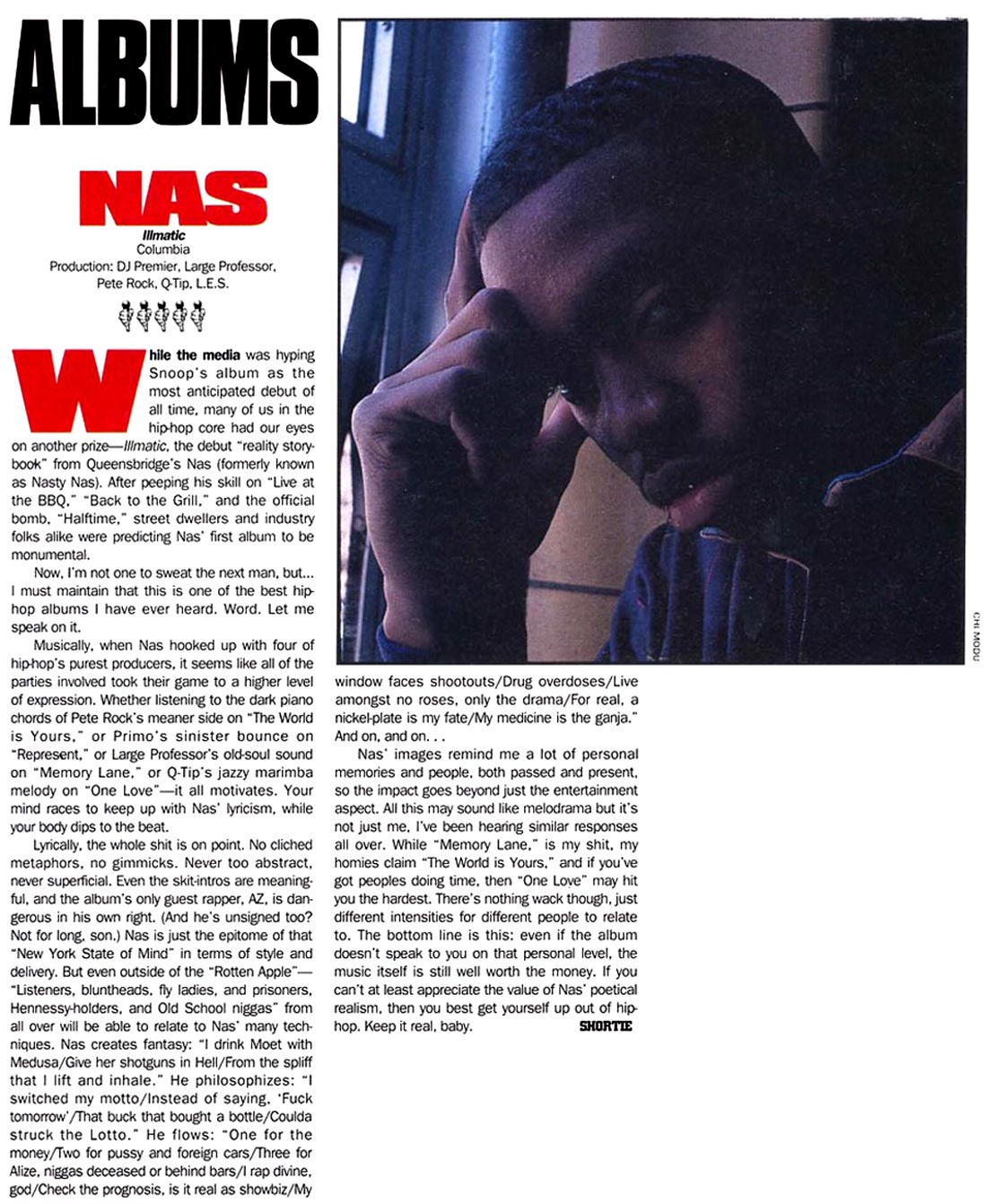
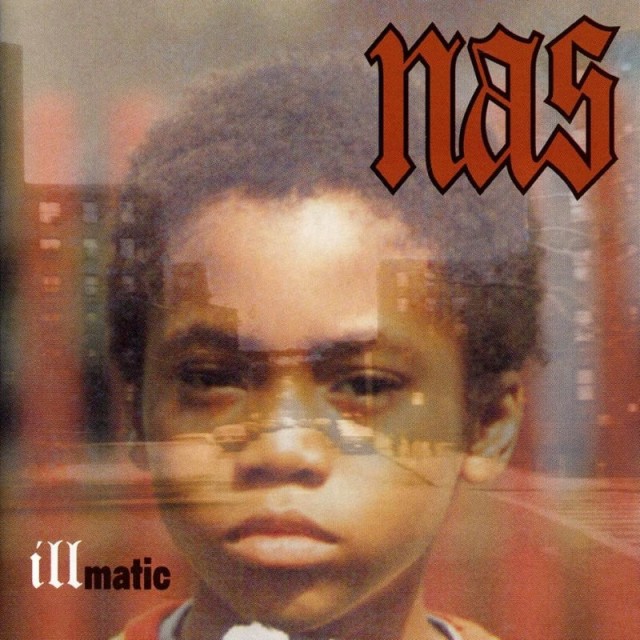
The Source |Read The Original 5-Mic Review of 'illmatic,' Written By @MissInfo As A Source Intern
Read The Original 5-Mic Review of 'illmatic,' Written By @MissInfo As A Source Intern

Last edited:
Last edited:
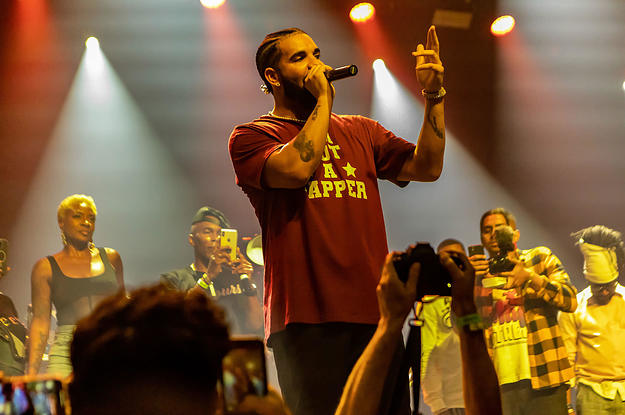
The Best Moments From Drake's All Canadian North Stars Show
On the opening night of October World Weeknd, Drake celebrated Canada's hip-hop and R&B lineage with an All-Star lineup including k-os, Nelly Furtado, and more.
Sinbad marvels at his first public appearance since his 2020 stroke: 'Miracles happen'
The actor made a virtual appearance at the "A Different World" HBCU College Tour event on Feb. 29.By
Lauren Huff
Published on March 4, 2024
Sinbad is thanking fans for the support he's seen in the wake of his first public appearance since having a stroke in 2020.
The comedian and actor made a virtual appearance at the A Different World HBCU College Tour event on Feb. 29 at Morehouse College in Atlanta, Georgia, to join his fellow castmates from the beloved sitcom to raise money for HBCU scholarships and encourage enrollment. (He played Coach Walter Oakes on the sitcom, which aired for six seasons from 1987 to 1993.)
"Man, that was so cool. A Different World going to Atlanta, going to Morehouse College and on campuses and getting a chance to be on Zoom and say something to the kids," Sinbad said in an Instagram video he shared on Monday. "It's wild that the kids even know who I am. That's beautiful."
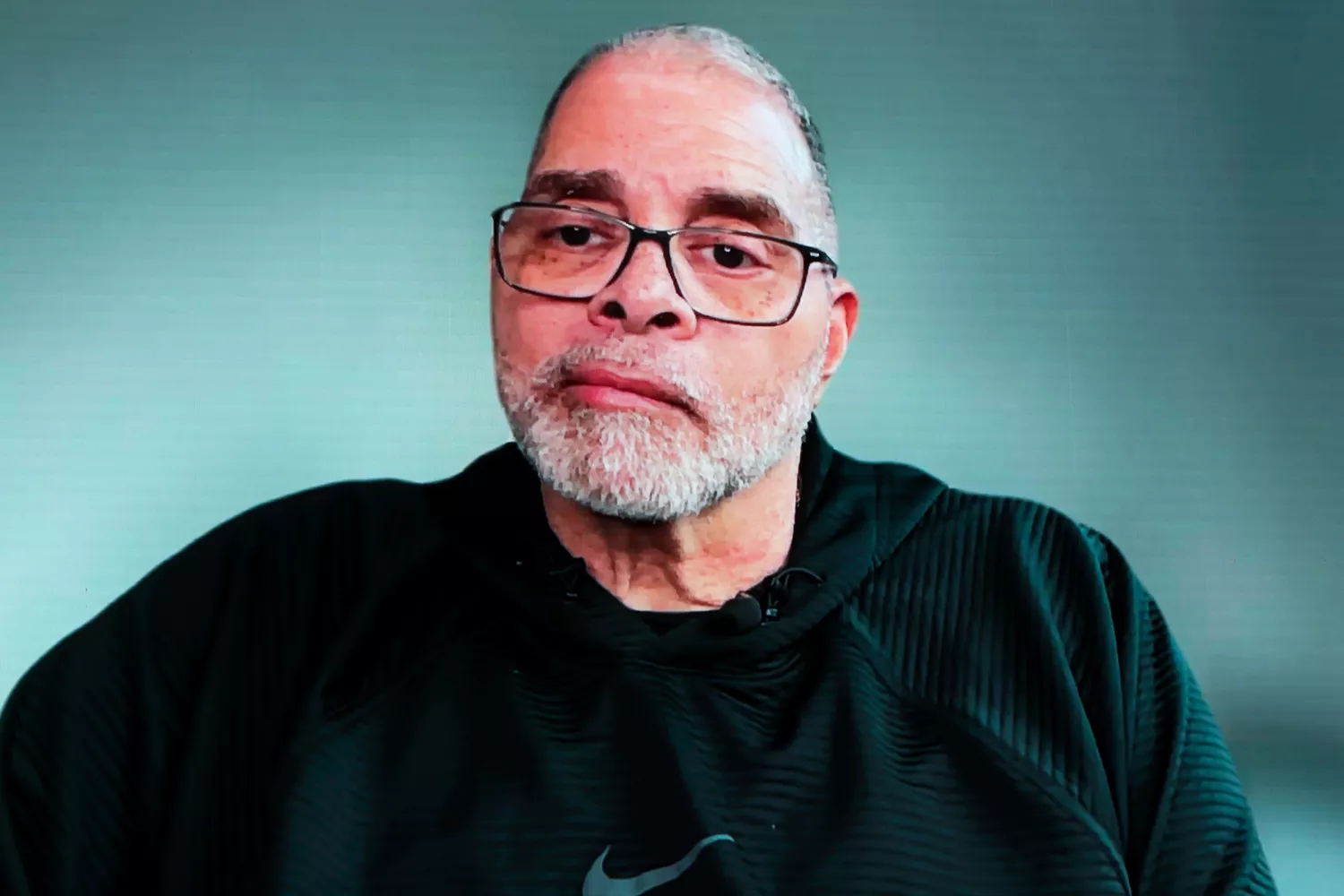
NYKIERIA CHANEY/GETTY
The video featured him marveling at a clip of his appearance, which captured very loud cheers from the audience when he appeared on screen at the event.
"Thank you to everybody who's been praying for me and saying good things and supporting me during this time in my life. It means a lot to me," he shared.
Sinbad finished his message by promising fans they'll be seeing more of him. "Expect to see more of me soon," he said, adding, "You better believe it. Miracles happen."
He further wrote in the caption, "Thank you for your prayers, support, and positive thoughts. They’ve carried me this far and will see me through to the finish line. It really is a different world out here!"
In Oct. 2020, the comedian's family shared in a statement on his website that he had suffered a stroke due to a blood clot traveling from his heart to his brain. Two years after the health scare, the Jingle All the Way star's family posted a photo of him learning how to walk again on Instagram. At the time, the family said in a statement, "He continues to receive therapy, fighting for every inch. His progress is nothing short of remarkable."
Monday's Instagram update was the first from the star himself since his family's message in Nov. 2022.
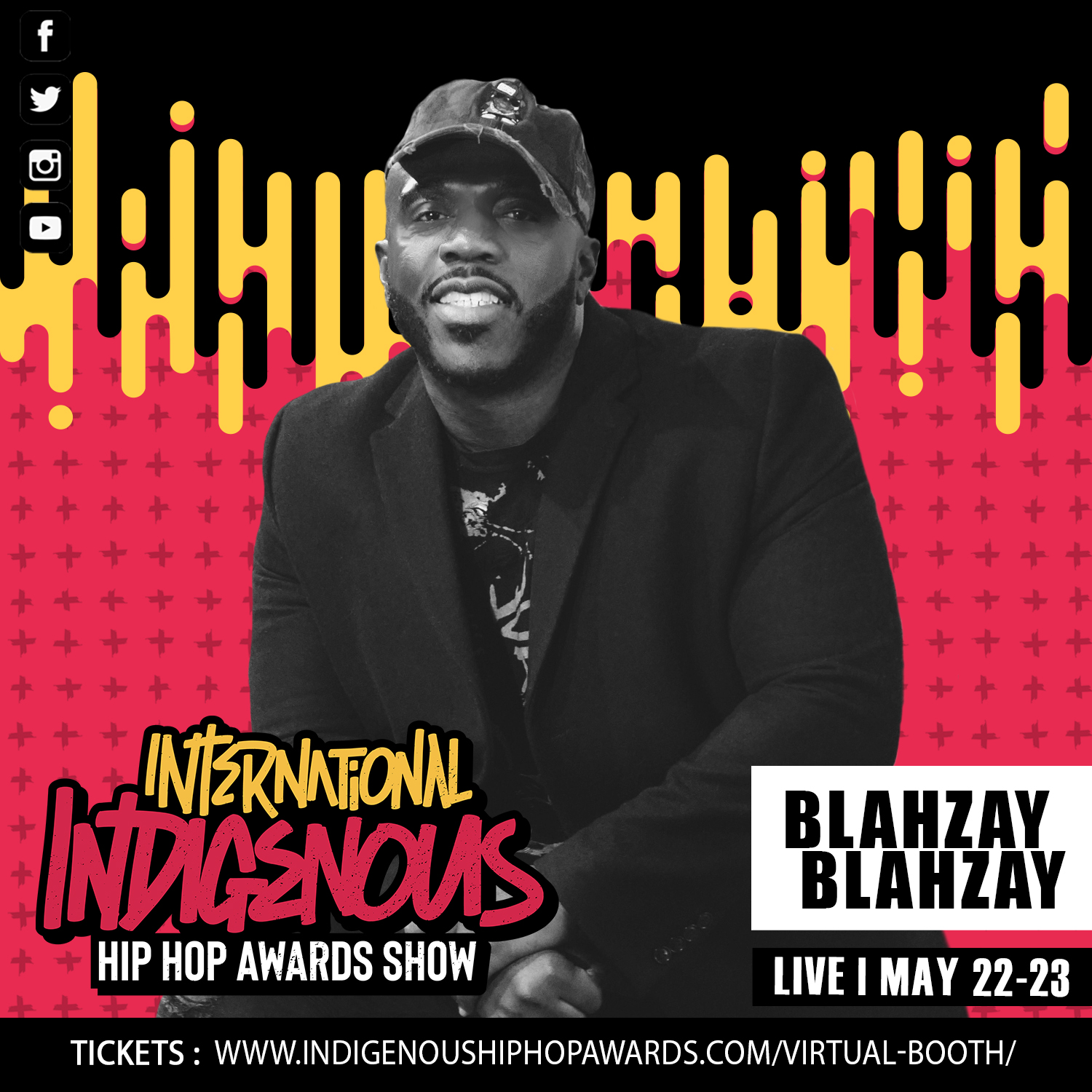
Say Hello To One Of Our Judges! Blahzay Blahzay! - Indigenous Hip Hop Awards Show
Your Content Goes Here
 www.indigenoushiphopawards.com
www.indigenoushiphopawards.com
Last edited:
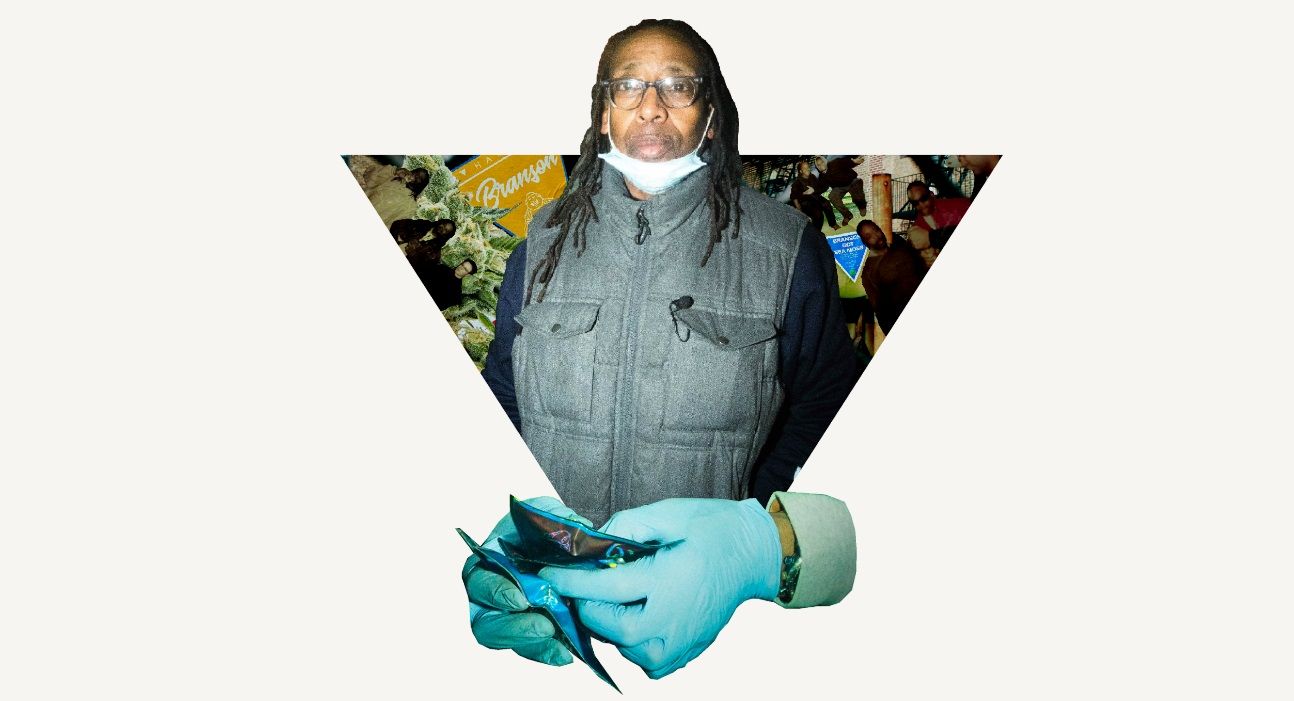
Branson Unplugged: New York's Weed Godfather Speaks
Immortalized in classic hip hop tracks, Branson is a cannabis OG and staple of Harlem culture. In this exclusive interview, he shares the story of his success as community leader, entrepreneur, and impresario, plus adventures with icons like The Notorious B.I.G. along the way.
 honeysucklemag.com
honeysucklemag.com
Branson Unplugged: New York's Weed Godfather Speaks
8 months ago by Sam Long, Ronit Pinto and Jaime Lubin • 14 min readImmortalized in classic hip hop tracks, Branson is a cannabis OG and staple of Harlem culture. In this exclusive interview, he shares the story of his success as community leader, entrepreneur, and impresario, plus adventures with icons like The Notorious B.I.G. along the way.
Press play to listen to this article.
0.5 x 1 x 1.25 x 1.5 x 2 x
00:00
Download
Even though he’s based his entire career on discretion, everyone knows the name Branson. The cannabis OG is on another level of entrepreneurship; not only is he responsible for supplying top-quality flower to all the major East Coast rappers and emcees since the 1990s, but he’s also become a staple of Harlem culture by dedicating himself to the community. Catching up with Branson in Harlem’s Sugar Hill neighborhood, where the legend admits his roots are deep “since 1963,” he continuously reminisces with Team Honeysuckle, but stops just as often to chat with local business owners, community leaders, and fellow longtime residents. His phone rings constantly too – because who doesn’t need advice from such a pioneer?
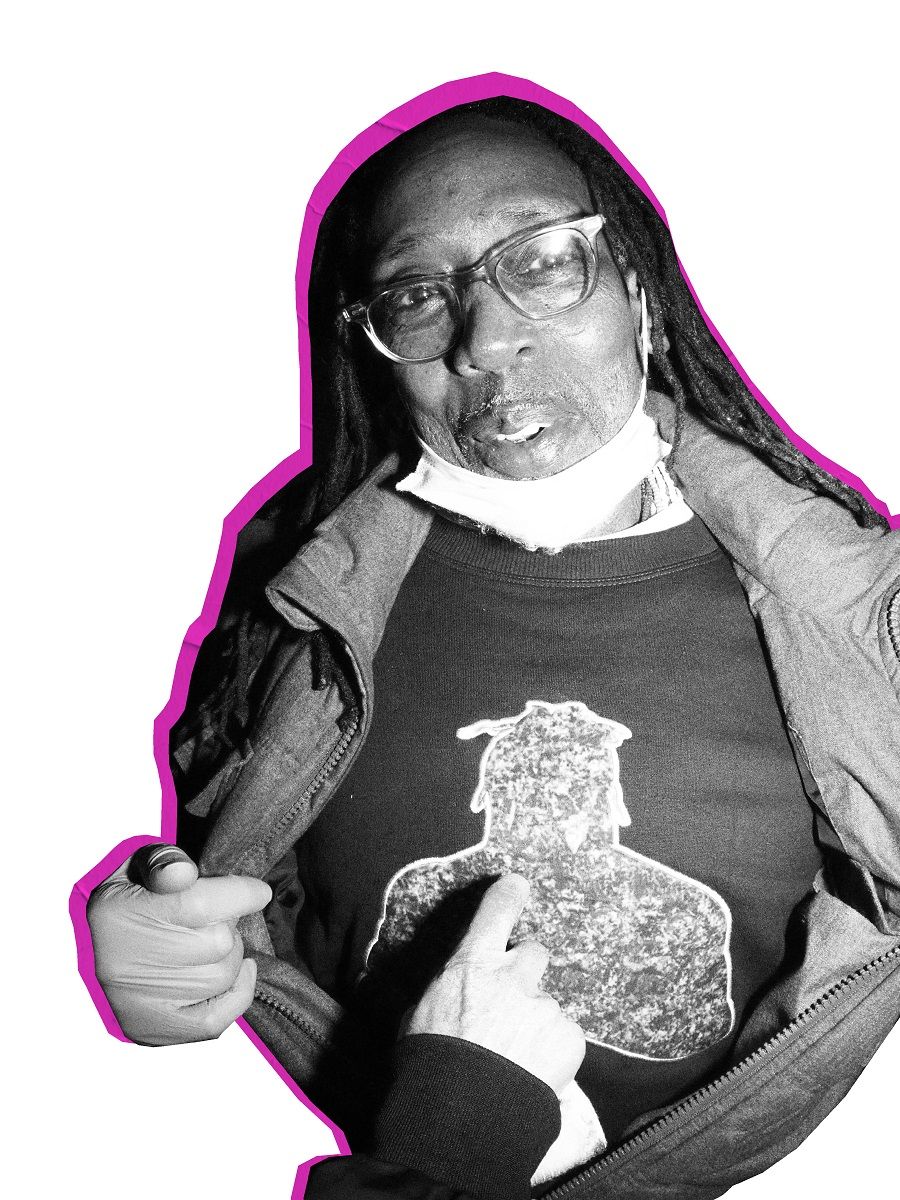
Branson: Who Is The Hip Hop Legend And Godfather Of New York Weed?
Branson’s name has been immortalized in 73-plus classic hip hop tracks, from The Notorious B.I.G. and Tracey Lee’s collaboration “Keep Your Hands High” to hits by Nas, LL Cool J, Diddy, Redman. Called a hero, a genius, a trailblazer, the Godfather of New York Weed, he developed such a storied reputation that his triangle-shaped packaging became iconic. The innovator established a pattern of bringing unique West Coast and international strains into the New York market that forever changed the scene, continuing to influence East Coasters’ tastes to this day.“It’s a big deal to be able to bring something into the community that’s not available,” Branson says. “Sometimes you’ve got to tempt people with their taste buds. [But] one of the major things that was really important was to be able to bring quality into my demographic and service my community with a quality situation that didn’t exist. Being able to do that and let our people acknowledge and feel good that they had something I made them a part of… I was surprised myself at times that I would come out to work and have people lined up around the block for the service. It was like, wow. I had no idea that it would turn into that type of situation, but it was a viable situation and people were being serviced properly.”

Branson As Harlem Community Leader: BJ's Sugar Bowl And Branson's Got Juice
“Service” as a concept pops up frequently in conversation with Branson. It’s a sign of his humility, a marker of his true OG status, that he focuses most of his energy on reinvesting himself into building local relationships and helping others. In his years as a cannabis king, he’s simultaneously run numerous enterprises, which generally have ended up feeding back into the place he grew up. He operated neighborhood hangout BJ’s Sugar Bowl for over twenty years; his long-running juice bar, Branson’s Got Juice, keeps locals and visitors alike stocked with healthy treats. Sugar Hill residents are additionally familiar with Branson as a haberdasher, art gallery owner, and a partner in an entertainment company that focused on music production, marketing and promotion.These businesses have empowered Branson to give many young Harlemites their first jobs. “It’s part of an established cycle,” he describes. “The elders in the community with businesses gave the kids an opportunity to work. And given the opportunity myself, I was able to give back as well. It made a difference to do something constructive as opposed to running the streets, doing nothing. [I hired the youth] to do promotions, hang posters, pass out flyers. Young people that used to work in the Sugar Bowl stacked the merchandise, swept the floors, cleaned the windows… Sometimes you don’t realize the value of certain principles. I’ve watched kids graduate from college and get jobs, and they come tell me they’re real grateful and thankful that I was able to give them that opportunity at that stage of their life. It taught them a certain etiquette in terms of how to deal with aspects of their growth and development.”
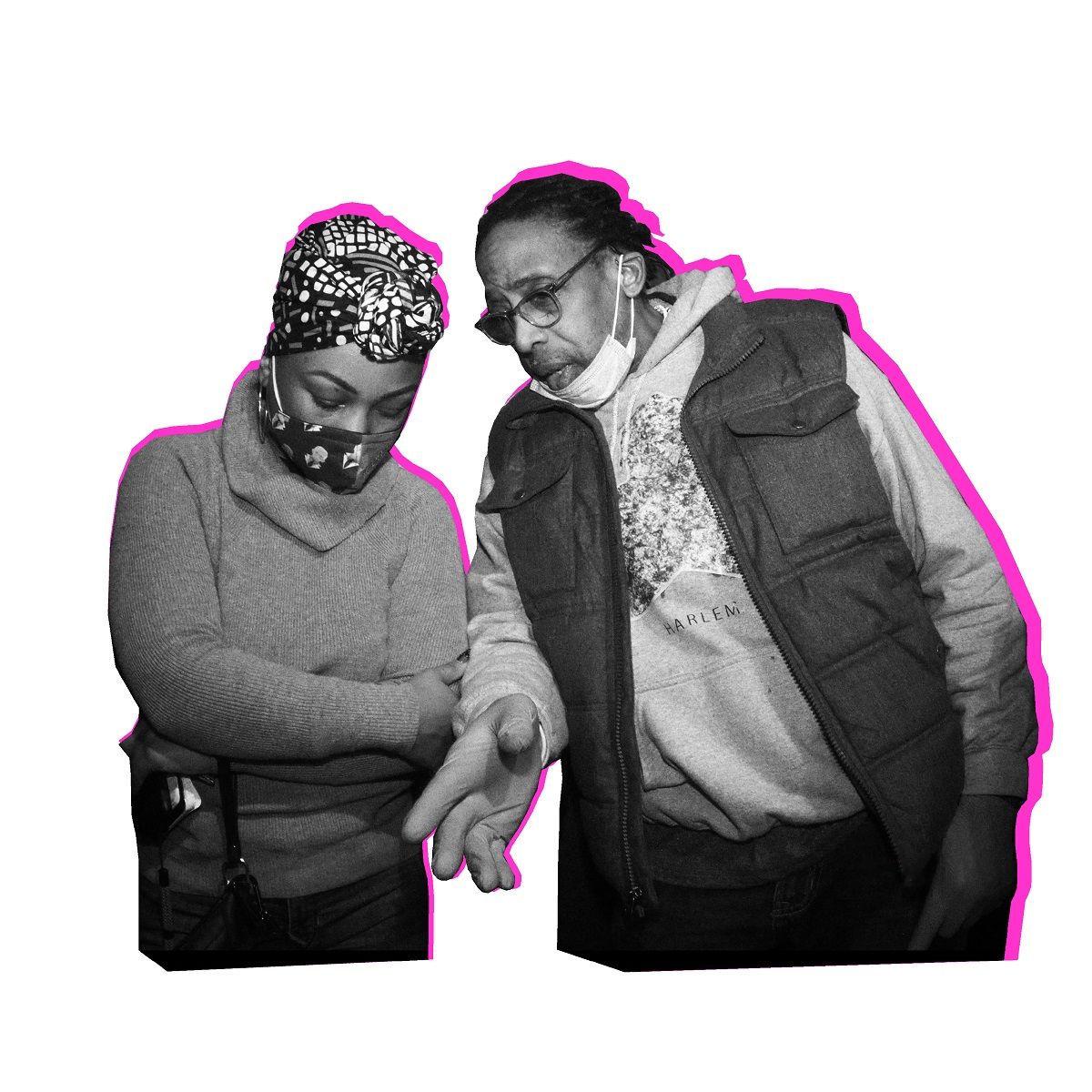
Early Branson: Graffiti Art And Social Activism
As the visionary relates, he used to be one of those kids in need of responsibility. “I was a bad boy,” he chuckles, recalling his early days as a pre-teen graffiti artist. “We tagged trains and went to train yards and wrote on people’s walls and properties.” Under the name Trease-158, he was featured along with a group of his peers in the 1974 collection The Faith of Graffiti, photographed by Jon Naar to illustrate Norman Mailer’s essay on graffiti’s political and artistic connotations. Branson says Naar followed him and his friends around for a year, taking pictures of their adventures and inviting them downtown to the New York School of the Arts.Coming into his adolescence, Branson found social activism. He participated in marches for the Black Panther Party, noting that the organization’s community programs, like free breakfasts for schoolchildren and the setup of local health clinics, were granting his neighborhood necessities that had been previously barred from them.
“You were made to understand the necessity of things that were lacking,” he explains when asked why the Panthers’ activities attracted him. “All these elements fused together in my existence. We marched – ‘Revolution has come, no more brothers in jail, pigs gotta catch hell.’ These are elements that transpired within the community during a certain period where they were affecting people in the neighborhood. [Overpolicing was] hurting the community; people acknowledged and realized it was problematic. So they stood up and tried to find a solution to [what] they had to deal with on a daily basis.”
Protest and art fuel each other, he adds, because all these actions together raise your consciousness and allow you to see inequities. “You got a lot of individuals from ethnic backgrounds who have a lot of issues with structures that exist… We’re dealing with bureaucratic structures that weren’t built with people in mind. Some people don’t question it and just go through the motions. [But] stuff goes on around you and certain things you realize you don’t have to accept.

How Did Branson Get Into Cannabis?
This is where cannabis also started making a greater impression in Branson’s life. The plant had always been present, “part of the daily indulgence,” as he calls it, with smoking as a frequent ritual for teenagers in the area. According to Branson: “At one point the marijuana situation came into play and we were all youth able to engage in smoking a joint. It was completely different in terms of the quality of the product. The quality was good during that period, but it was just a different dynamic acquiring it. We used to go by $5 bags of Jamaican – it might be a five or six of us and we chip in whatever money we had. If you had a dollar or 50 cents, we can add it up to $5 to get a bag and we would roll maybe about 19 joints out of that bag. So economically, that was incredible.”But as the young man’s eyes opened to the greater cultural landscape, getting more involved at the same time with the burgeoning hip hop scene, he began to see the potential for bigger business in cannabis. “I was in the street; I used to hustle on the corner. Being an individual doing that, you get slow periods. So I was a little creative trying to figure out some of the things I could do as far as marketing to boost my business. And one of the things that I came up with was going to different environments and trying to service other people. I had clients down in the Lower East Side, people in different places, so just being mobile and moving around and touching different situations, that also helped a lot to build a clientele and relationships. Those relationships turned into other opportunities.”
Beyond that, the ingenious hustler offered quality products. “Back in the day, we had Jamaican, Thai Stick, Buddha Rod,” he lists off. “Those were elements of product that were available.” The combination of high-caliber flower and making the right connections eventually sparked a kismet moment in Baltimore, when Branson had a stroke of inspiration at a pancake restaurant. “I was trying to find something that would help promote the product, boost the visibility in sales. And that’s when I came up with the triangle bag. I drew it on a napkin and created that concept and idea. And I had people I was working with who had the ability to produce [it], so I gave them the napkin and they created the triangle bags for me. That became a part of me in terms of being able to sell my product as a recognizable brand.”
Indeed, Branson’s triangle bags were so immediately identifiable that they became his trademark. When Redman unearthed one in his house in 2019, posting a video to Twitter where he celebrated finding a 20-year-old piece of cannabis history and shouting out hip hop greats in Branson’s circle like Biggie, The LOX, Lil Cease, NORE, and Cam’ron, the discovery made headlines in every major outlet.
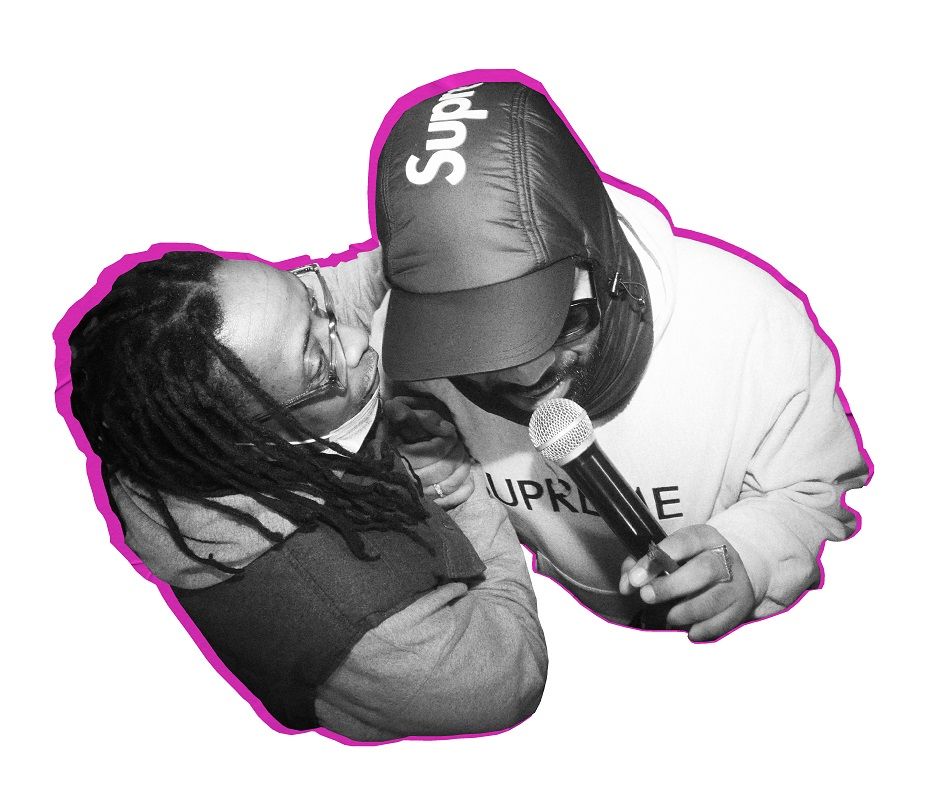
Branson's New York: Cannabis And Community, Service And Discretion
By that time, the entrepreneur had carved out his route to transport product in from California, which he asserts gave him the edge over his competitors. “The quality was really important during that time period, and [other suppliers] didn’t have the variety. You had the Haze and the Sour, and I might change the variety of products that I had weekly. I had products coming in from Cali that nobody else had, and was able to bring that in and service the community with a higher quality product than they were used to. It just took it to the next level.”Meanwhile, looking out for his community in more ways than one, Branson incorporated his plant-based services into general operations at the Sugar Bowl. The products were part of an already-thriving local business where people bought typical items every day. As customers entered, purchased chips, sodas, candies, and the like, then exited with a bag, there was no way to tell if that bag contained something extra. It wouldn’t arouse suspicion either. Because the Sugar Bowl was well established as a neighborhood gathering place, the routine was so discreet that police barely bothered anyone there. Even on the rare occasions when police presence might cause a tense situation, Branson was so well-regarded that he could instantly shut down any problems.
“I’ve had conversations with law enforcement and have been approached with certain situations,” he attests. “But I wasn’t overexposing myself to anything. I was being mindful and respectful to the law. And from 150th to 155th Street and St. Nicholas Place, we’d have block parties every year. We’re feeding the community, so earning and making money and giving something back to the neighborhood. I was taught that by my elders. You give back to the community, you know the lady across the street, when that lady sees the police coming, she’ll turn to you and say, ‘If you got any problems, just throw [the weed] in the window here.’ The neighbors look out for you because you are part of the community. If you’re feeding the neighborhood and being mindful, then you have different options… It was just a working, functional situation for everybody involved.”
“Mindfulness and respect,” like “service” and “discretion,” are primary keywords for Branson. He emphasizes that there should still be a kind of formality between children and adults, that honoring one’s parents is a crucial part of growing up. Critiquing the influence of social media and online culture, Branson comments, “The kids are paying more attention to that than to their parents, and I don’t think that’s a good situation at all. You’ve got to take care of those who take care of you. I don’t think that the kids understand those values, those principles and morals. I think that those need to be put back in place. Somebody will turn around and say [I’m] old-fashioned. Old-fashioned is good.”
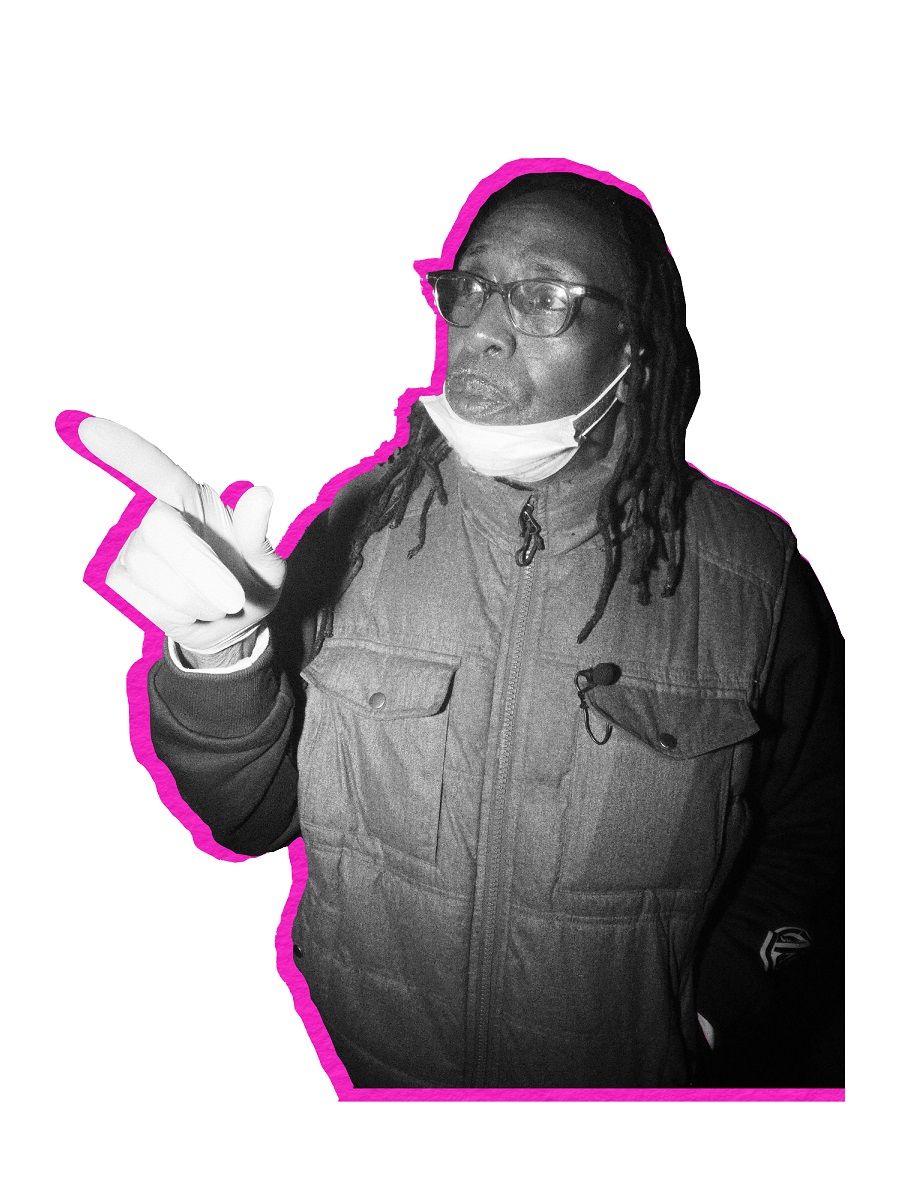
Branson, Berner, And Cookies: The Next Evolution Of Cannabis Branding
That’s even true for Branson when it comes to his cherished cannabis, as he’s now focusing on releasing those classic products to the public in a new way. Over the past two years, he’s developed a working relationship with rapper Berner, founder of the globally phenomenal brand Cookies. Together they are branding the iconic triangle bags with new strain releases for the legal market, the first of which are scheduled to drop in New Jersey this spring. (One strain, Harlem’s Finest, is already getting great pre-release buzz.)“Berner’s a good guy,” Branson states. “He’s still a young man, and for him to have the opportunity to establish the platform he’s established, he’s doing incredible work. He has recognized my value, and came to the table wanting me to be a part of that… and I’m happy to be a part of it. But he does come from a different dynamic, because marijuana has been legal in California for 20 years. It feels good that he understands my value and the history. But I think for some of the people I have conversations with – and there are a lot of conversations I have going on – they don’t completely understand the history and the value of the brand. They look at it from a certain perspective. We talk about the music and things behind that. But the fact of the matter is, you know, I hear NORE say on [his podcast] Drink Champs, ‘Branson had a dispensary 40 years ago.’ And realistically, that’s pretty much what existed during that time period. It was an activity that went on. I had to be discreet about it in a particular kind of way, and knowing and understanding the necessity of how to operate a situation like that.”
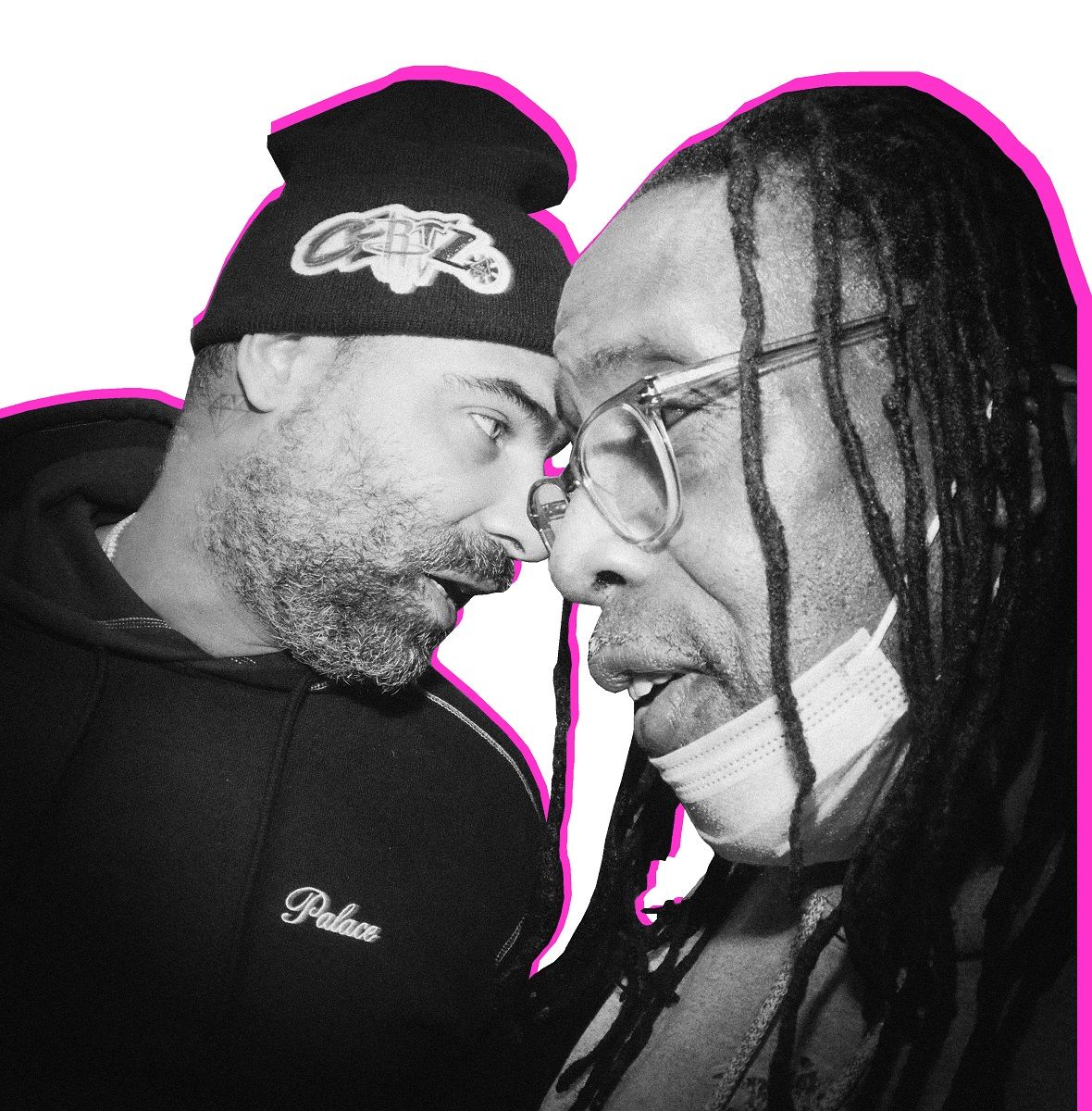
Coming Out Of The Dark: Branson And New York's Cannabis Legalization
Little by little, Branson is coming to balance his mantra of discretion with the reputation he’s built in the public mind. He appeared in Fab 5 Freddy’s acclaimed Netflix documentary Grass Is Greener in 2019, which explored the joint (pun intended) histories of music, cannabis, and racial oppression. He acknowledges the mythification of himself through the hip hop greats, and is even rumored to have been the inspiration for the dealer character Samson in the cult favorite film Half Baked. Yet coming out in the open remains something he’s constantly adjusting to in the wake of New York legalization.“It’s a difficult process,” he admits. “Having this conversation is something I wouldn’t have considered doing [previously]. You don’t talk, you don’t tell. So to a certain degree, [doing this] is like you’re telling. You’re exposing yourself to the public. People done heard my name for a long time, but they ain’t knowing who I was. Sometimes people pass me in the street now, and they ask, ‘Aren’t you Branson?’ Sometimes I say no, depending on the approach. If I’m getting that kind of exposure, I want to get the dollars to go along with it. So if the door is open, we’re talking about being able to build this brand on a global scale, I think it’s a big deal. If I’m partnering with the right situation that I can build to that capacity and service the community and allow them to be pleased with their receiving, it makes a big difference.”
Where he continues to be skeptical, staying true to his activist roots, is of the government’s ability to provide true social equity through cannabis legalization. Comparing the approach to how the liquor industry and the state lotteries were regulated, Branson believes it may likely become a case of systemic control all over again, locking out people who really need the resources and forcing underground operations to strengthen to meet that need. (Although he’s equally wary of many of the greymarket shops that have popped up around New York City in the past two years, because in his view they don’t care about taking care of the community either. And they don’t operate with mindfulness, respect, or discretion.)
Ultimately, he hopes that our communities will get back to focusing on those values, and to recognize how the plant fits into our lives – as a tool for inspiration rather than escape. “Everybody’s indulgence is different,” the pioneer observes. “Certain elements balance people out, but I think that one of these elements and this service that was provided created an abundance for people. I think the quality of what they were receiving put them in a different zone so they could exercise their creative process. It didn’t necessarily have to do with me, but with the product itself. If the product is a quality product and people are able to get into a mode that allows them to be creative and productive, that speaks for itself… We’ve seen people get high and overdo it; they’re high to the point where they’re not functional. But if you have a situation where it allows a person to be functional and creative and produce something that's viable, I think that makes a big difference.”
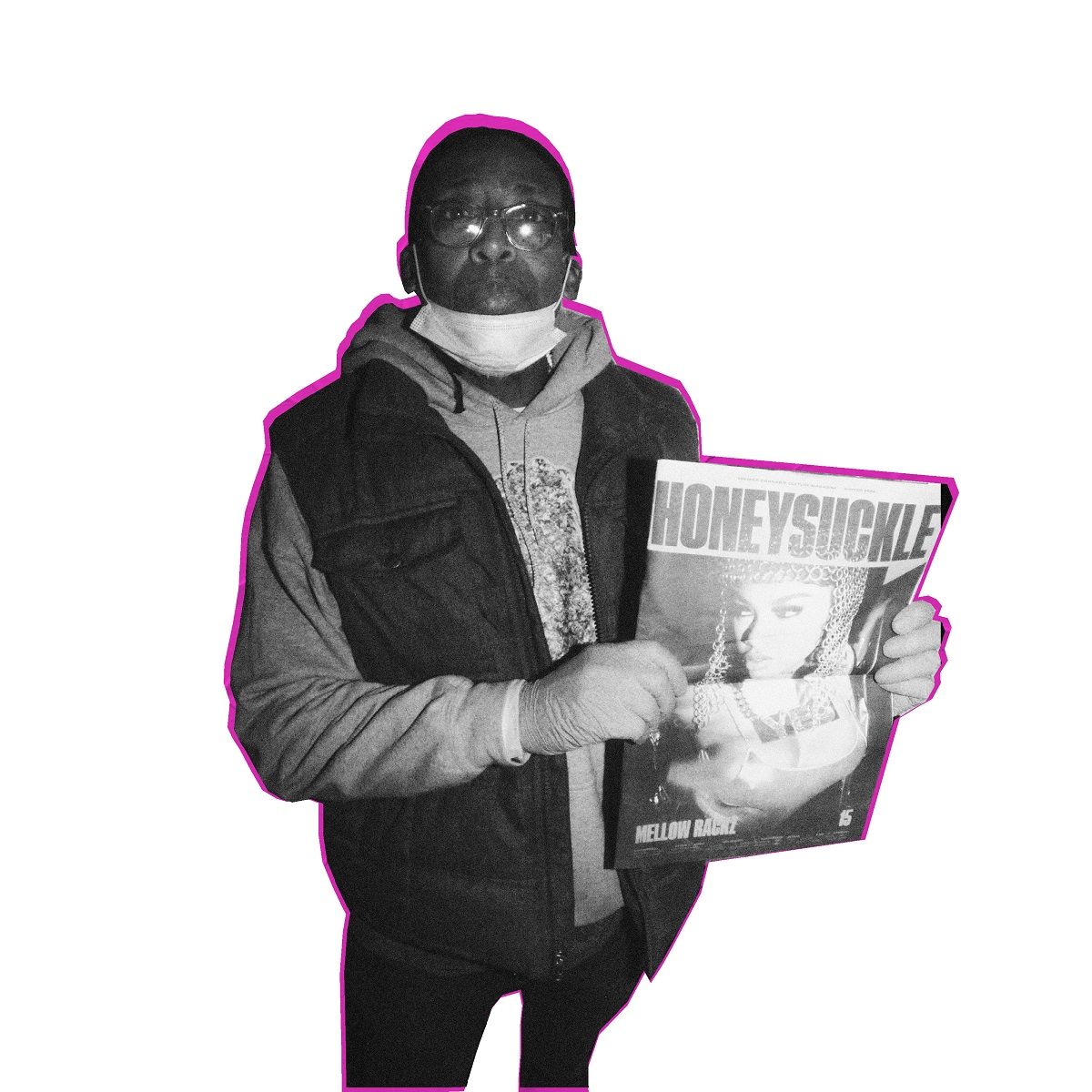
Branson Remembers The Notorious B.I.G. And "Keep Your Hands High"
One of the greatest examples of working with the plant correctly, in Branson’s mind, came from the recording session of “Keep Your Hands High” with The Notorious B.I.G. and Tracey Lee. Biggie invited Branson to the studio that day, where everyone was drinking champagne and smoking cannabis. “Just being in certain people’s company was a good thing,” the connoisseur remembers. “Like, ‘Meet me in the studio, such and such are gonna be there,’ just day to day stuff. But that night I went in the studio and Biggie did that Tracey Lee joint. It was so crazy ‘cause when I got there, he said, ‘You know, I couldn’t do this without you. I was waiting on you.’ So when he got in there and did the song, the studio was rocking so hard, it was incredible. Everybody that was there had a good time and they indulged in just a good feeling based on that song. It was phenomenal.”(Side note: Branson also introduced Biggie to top-shelf bubbly. As a gourmand of all areas, our hero even developed a cult following for his expertise in champagne. Dubbed “Hip Hop’s Unofficial Sommelier” by Forbes, the epicurean master shared his love of the beverage with clients including Diddy and Jay-Z, and released his own line of Branson B. Cuvée in the mid-2000s that was adored by performers from Flavor Flav to The Game.)
And here lies the heart of the cannabis – and life – experience in which Branson specializes. It’s not about you, or your brand, but what you return back to your community. It’s about friendship and connections. It’s about empowering yourself and those around you to dream so that one day you may change the system. Finally, it’s about learning when to conduct yourself with mindfulness, respect, discretion, and some artistry too. Here’s to Sugar Hill’s favorite son. May the old be new once more.
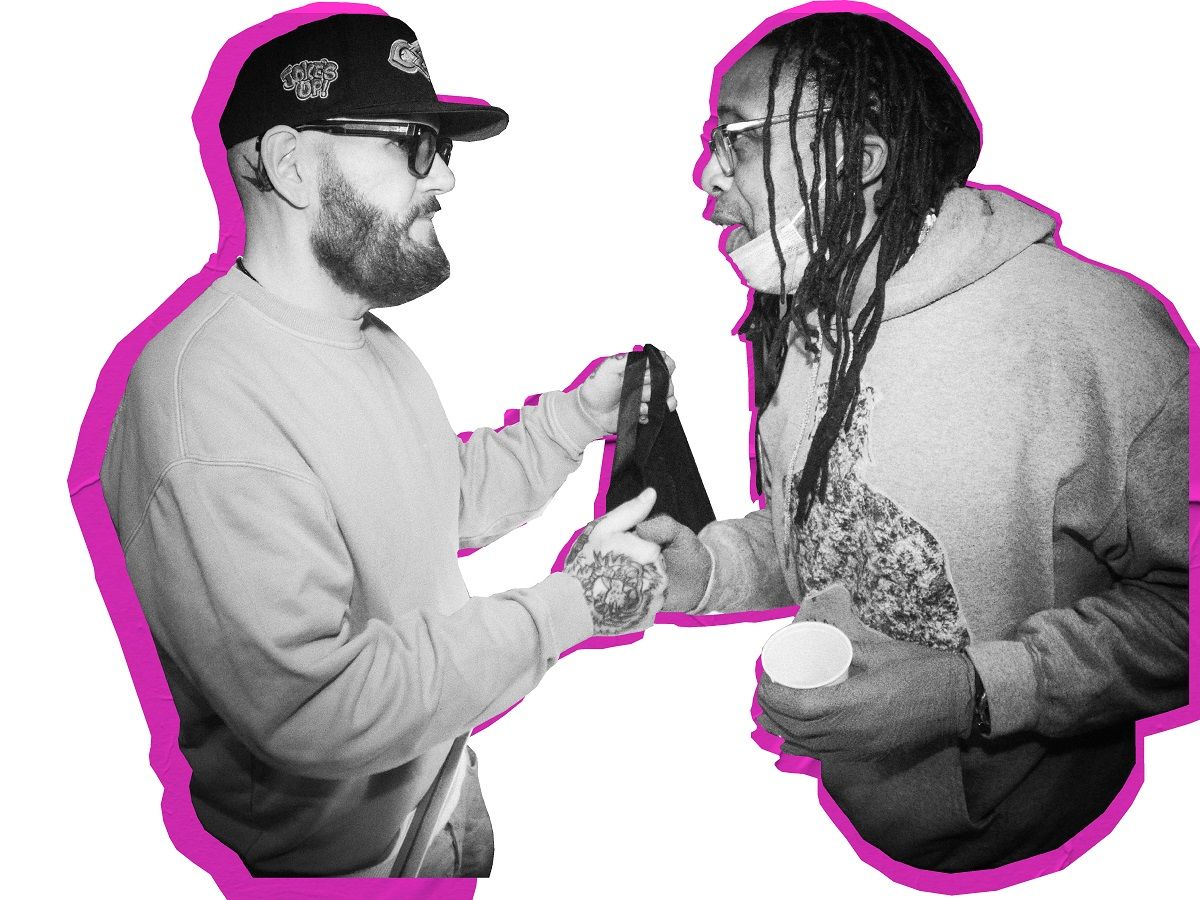
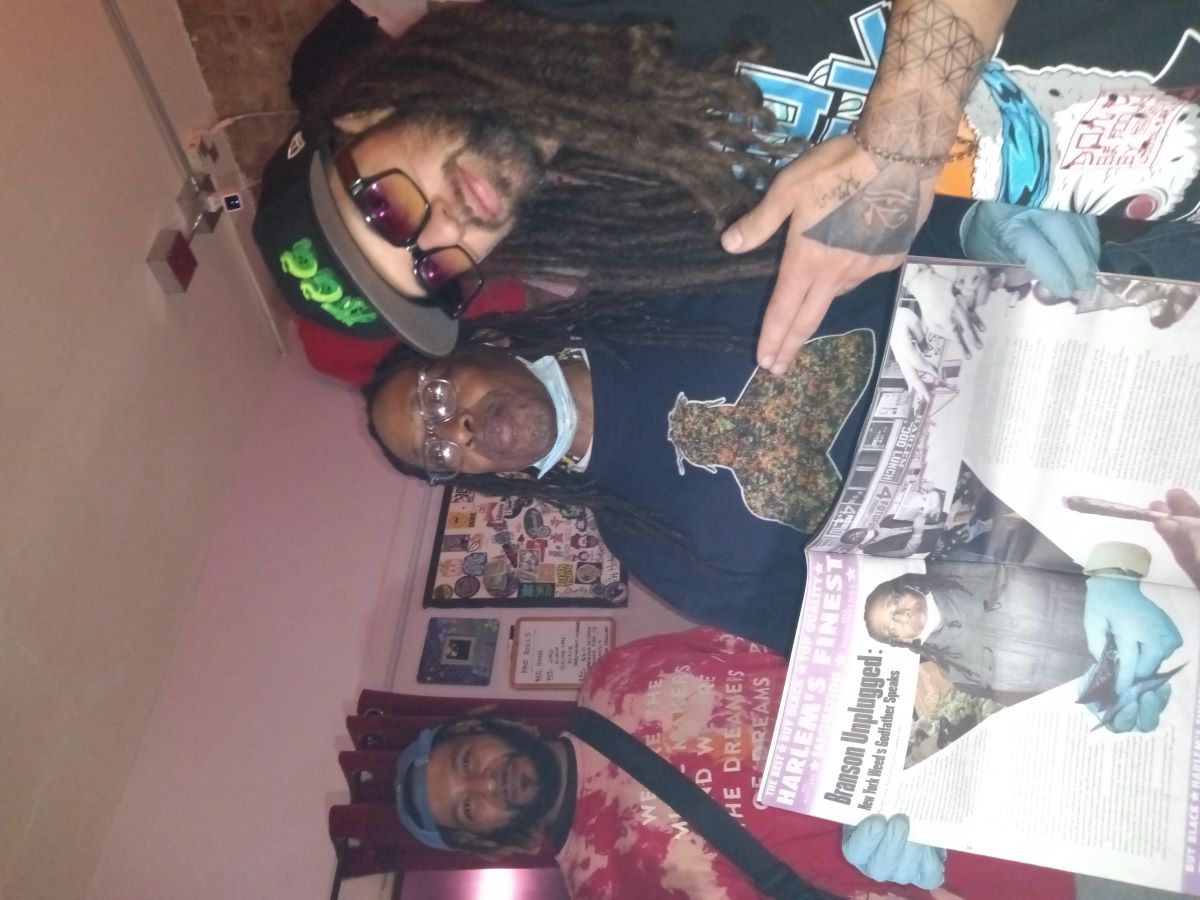
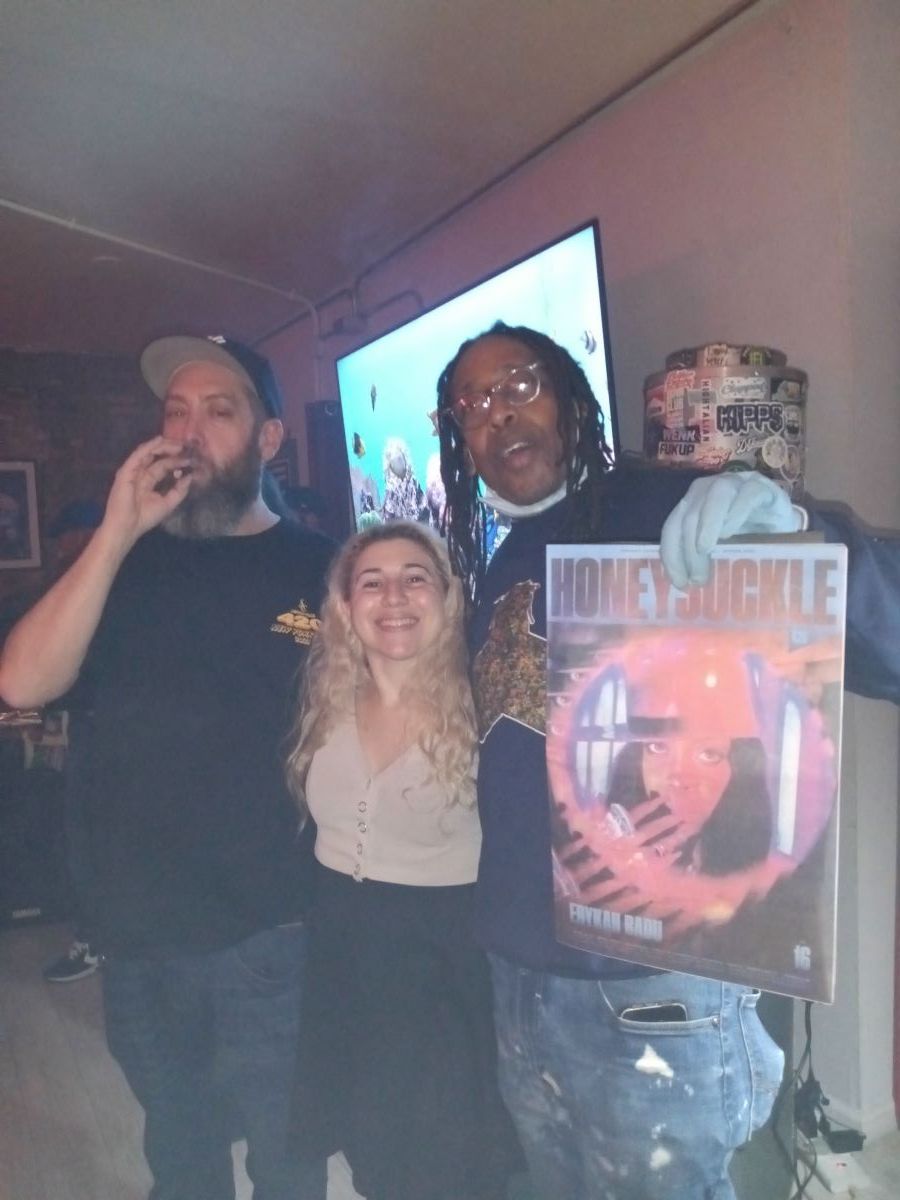
Left: (C) Sam C. Long / Honeysuckle Media, Inc. @tissuekulture; center: Branson at The Astor Club @astorclubnyc with Jimmy The Green Giant @jimmythegreengiant, founder of The Green Giant Shop @TheGreenGiantShop (C) Jaime Lubin / Honeysuckle Media, Inc. @jaimelubin; right: Branson with The Astor Club co-founder Matt Siegel @adyingbreednyc and Honeysuckle Editor-At-Large Jaime Lubin (C) Jimmy The Green Giant
Branson's Special Thanks
Branson wishes to thank all those colleagues who worked alongside him through the years: Eddie Trump (no relation to Donald), Lenny, Dennis (Chocolate Chip), Tyrone E (Little Pete), Albert, Terrance, Dirty Red (Rodney Patterson), Afro Brothers, The Battle Grounds, The Hill, Jay-Z, Emory, Michael A., Ted Chung, and Al Harrington, as well as close friends and family members like his goddaughter Chenese, Big Liz, Darrria, T, and Fat Stevie for support in a very crucial time.

Branson Unplugged: New York's Weed Godfather Speaks
Immortalized in classic hip hop tracks, Branson is a cannabis OG and staple of Harlem culture. In this exclusive interview, he shares the story of his success as community leader, entrepreneur, and impresario, plus adventures with icons like The Notorious B.I.G. along the way.honeysucklemag.com
Branson Unplugged: New York's Weed Godfather Speaks
8 months ago by Sam Long, Ronit Pinto and Jaime Lubin • 14 min read
Immortalized in classic hip hop tracks, Branson is a cannabis OG and staple of Harlem culture. In this exclusive interview, he shares the story of his success as community leader, entrepreneur, and impresario, plus adventures with icons like The Notorious B.I.G. along the way.
Press play to listen to this article.
0.5 x 1 x 1.25 x 1.5 x 2 x
00:00
Download
Even though he’s based his entire career on discretion, everyone knows the name Branson. The cannabis OG is on another level of entrepreneurship; not only is he responsible for supplying top-quality flower to all the major East Coast rappers and emcees since the 1990s, but he’s also become a staple of Harlem culture by dedicating himself to the community. Catching up with Branson in Harlem’s Sugar Hill neighborhood, where the legend admits his roots are deep “since 1963,” he continuously reminisces with Team Honeysuckle, but stops just as often to chat with local business owners, community leaders, and fellow longtime residents. His phone rings constantly too – because who doesn’t need advice from such a pioneer?
Branson (C) Sam C. Long / Honeysuckle Media, Inc. @tissuekulture
Branson: Who Is The Hip Hop Legend And Godfather Of New York Weed?
Branson’s name has been immortalized in 73-plus classic hip hop tracks, from The Notorious B.I.G. and Tracey Lee’s collaboration “Keep Your Hands High” to hits by Nas, LL Cool J, Diddy, Redman. Called a hero, a genius, a trailblazer, the Godfather of New York Weed, he developed such a storied reputation that his triangle-shaped packaging became iconic. The innovator established a pattern of bringing unique West Coast and international strains into the New York market that forever changed the scene, continuing to influence East Coasters’ tastes to this day.
“It’s a big deal to be able to bring something into the community that’s not available,” Branson says. “Sometimes you’ve got to tempt people with their taste buds. [But] one of the major things that was really important was to be able to bring quality into my demographic and service my community with a quality situation that didn’t exist. Being able to do that and let our people acknowledge and feel good that they had something I made them a part of… I was surprised myself at times that I would come out to work and have people lined up around the block for the service. It was like, wow. I had no idea that it would turn into that type of situation, but it was a viable situation and people were being serviced properly.”
Wrapper from Branson's classic products (C) @branson_got_juice
Branson As Harlem Community Leader: BJ's Sugar Bowl And Branson's Got Juice
“Service” as a concept pops up frequently in conversation with Branson. It’s a sign of his humility, a marker of his true OG status, that he focuses most of his energy on reinvesting himself into building local relationships and helping others. In his years as a cannabis king, he’s simultaneously run numerous enterprises, which generally have ended up feeding back into the place he grew up. He operated neighborhood hangout BJ’s Sugar Bowl for over twenty years; his long-running juice bar, Branson’s Got Juice, keeps locals and visitors alike stocked with healthy treats. Sugar Hill residents are additionally familiar with Branson as a haberdasher, art gallery owner, and a partner in an entertainment company that focused on music production, marketing and promotion.
These businesses have empowered Branson to give many young Harlemites their first jobs. “It’s part of an established cycle,” he describes. “The elders in the community with businesses gave the kids an opportunity to work. And given the opportunity myself, I was able to give back as well. It made a difference to do something constructive as opposed to running the streets, doing nothing. [I hired the youth] to do promotions, hang posters, pass out flyers. Young people that used to work in the Sugar Bowl stacked the merchandise, swept the floors, cleaned the windows… Sometimes you don’t realize the value of certain principles. I’ve watched kids graduate from college and get jobs, and they come tell me they’re real grateful and thankful that I was able to give them that opportunity at that stage of their life. It taught them a certain etiquette in terms of how to deal with aspects of their growth and development.”
Branson and friend in Harlem (C) Sam C. Long / Honeysuckle Media, Inc. @tissuekulture
Early Branson: Graffiti Art And Social Activism
As the visionary relates, he used to be one of those kids in need of responsibility. “I was a bad boy,” he chuckles, recalling his early days as a pre-teen graffiti artist. “We tagged trains and went to train yards and wrote on people’s walls and properties.” Under the name Trease-158, he was featured along with a group of his peers in the 1974 collection The Faith of Graffiti, photographed by Jon Naar to illustrate Norman Mailer’s essay on graffiti’s political and artistic connotations. Branson says Naar followed him and his friends around for a year, taking pictures of their adventures and inviting them downtown to the New York School of the Arts.
Coming into his adolescence, Branson found social activism. He participated in marches for the Black Panther Party, noting that the organization’s community programs, like free breakfasts for schoolchildren and the setup of local health clinics, were granting his neighborhood necessities that had been previously barred from them.
“You were made to understand the necessity of things that were lacking,” he explains when asked why the Panthers’ activities attracted him. “All these elements fused together in my existence. We marched – ‘Revolution has come, no more brothers in jail, pigs gotta catch hell.’ These are elements that transpired within the community during a certain period where they were affecting people in the neighborhood. [Overpolicing was] hurting the community; people acknowledged and realized it was problematic. So they stood up and tried to find a solution to [what] they had to deal with on a daily basis.”
Protest and art fuel each other, he adds, because all these actions together raise your consciousness and allow you to see inequities. “You got a lot of individuals from ethnic backgrounds who have a lot of issues with structures that exist… We’re dealing with bureaucratic structures that weren’t built with people in mind. Some people don’t question it and just go through the motions. [But] stuff goes on around you and certain things you realize you don’t have to accept.
(C) Sam C. Long / Honeysuckle Media, Inc. @tissuekulture
How Did Branson Get Into Cannabis?
This is where cannabis also started making a greater impression in Branson’s life. The plant had always been present, “part of the daily indulgence,” as he calls it, with smoking as a frequent ritual for teenagers in the area. According to Branson: “At one point the marijuana situation came into play and we were all youth able to engage in smoking a joint. It was completely different in terms of the quality of the product. The quality was good during that period, but it was just a different dynamic acquiring it. We used to go by $5 bags of Jamaican – it might be a five or six of us and we chip in whatever money we had. If you had a dollar or 50 cents, we can add it up to $5 to get a bag and we would roll maybe about 19 joints out of that bag. So economically, that was incredible.”
But as the young man’s eyes opened to the greater cultural landscape, getting more involved at the same time with the burgeoning hip hop scene, he began to see the potential for bigger business in cannabis. “I was in the street; I used to hustle on the corner. Being an individual doing that, you get slow periods. So I was a little creative trying to figure out some of the things I could do as far as marketing to boost my business. And one of the things that I came up with was going to different environments and trying to service other people. I had clients down in the Lower East Side, people in different places, so just being mobile and moving around and touching different situations, that also helped a lot to build a clientele and relationships. Those relationships turned into other opportunities.”
Beyond that, the ingenious hustler offered quality products. “Back in the day, we had Jamaican, Thai Stick, Buddha Rod,” he lists off. “Those were elements of product that were available.” The combination of high-caliber flower and making the right connections eventually sparked a kismet moment in Baltimore, when Branson had a stroke of inspiration at a pancake restaurant. “I was trying to find something that would help promote the product, boost the visibility in sales. And that’s when I came up with the triangle bag. I drew it on a napkin and created that concept and idea. And I had people I was working with who had the ability to produce [it], so I gave them the napkin and they created the triangle bags for me. That became a part of me in terms of being able to sell my product as a recognizable brand.”
Indeed, Branson’s triangle bags were so immediately identifiable that they became his trademark. When Redman unearthed one in his house in 2019, posting a video to Twitter where he celebrated finding a 20-year-old piece of cannabis history and shouting out hip hop greats in Branson’s circle like Biggie, The LOX, Lil Cease, NORE, and Cam’ron, the discovery made headlines in every major outlet.
(C) Sam C. Long / Honeysuckle Media, Inc. @tissuekulture
Branson's New York: Cannabis And Community, Service And Discretion
By that time, the entrepreneur had carved out his route to transport product in from California, which he asserts gave him the edge over his competitors. “The quality was really important during that time period, and [other suppliers] didn’t have the variety. You had the Haze and the Sour, and I might change the variety of products that I had weekly. I had products coming in from Cali that nobody else had, and was able to bring that in and service the community with a higher quality product than they were used to. It just took it to the next level.”
Meanwhile, looking out for his community in more ways than one, Branson incorporated his plant-based services into general operations at the Sugar Bowl. The products were part of an already-thriving local business where people bought typical items every day. As customers entered, purchased chips, sodas, candies, and the like, then exited with a bag, there was no way to tell if that bag contained something extra. It wouldn’t arouse suspicion either. Because the Sugar Bowl was well established as a neighborhood gathering place, the routine was so discreet that police barely bothered anyone there. Even on the rare occasions when police presence might cause a tense situation, Branson was so well-regarded that he could instantly shut down any problems.
“I’ve had conversations with law enforcement and have been approached with certain situations,” he attests. “But I wasn’t overexposing myself to anything. I was being mindful and respectful to the law. And from 150th to 155th Street and St. Nicholas Place, we’d have block parties every year. We’re feeding the community, so earning and making money and giving something back to the neighborhood. I was taught that by my elders. You give back to the community, you know the lady across the street, when that lady sees the police coming, she’ll turn to you and say, ‘If you got any problems, just throw [the weed] in the window here.’ The neighbors look out for you because you are part of the community. If you’re feeding the neighborhood and being mindful, then you have different options… It was just a working, functional situation for everybody involved.”
“Mindfulness and respect,” like “service” and “discretion,” are primary keywords for Branson. He emphasizes that there should still be a kind of formality between children and adults, that honoring one’s parents is a crucial part of growing up. Critiquing the influence of social media and online culture, Branson comments, “The kids are paying more attention to that than to their parents, and I don’t think that’s a good situation at all. You’ve got to take care of those who take care of you. I don’t think that the kids understand those values, those principles and morals. I think that those need to be put back in place. Somebody will turn around and say [I’m] old-fashioned. Old-fashioned is good.”
(C) Sam C. Long / Honeysuckle Media, Inc. @tissuekulture
Branson, Berner, And Cookies: The Next Evolution Of Cannabis Branding
That’s even true for Branson when it comes to his cherished cannabis, as he’s now focusing on releasing those classic products to the public in a new way. Over the past two years, he’s developed a working relationship with rapper Berner, founder of the globally phenomenal brand Cookies. Together they are branding the iconic triangle bags with new strain releases for the legal market, the first of which are scheduled to drop in New Jersey this spring. (One strain, Harlem’s Finest, is already getting great pre-release buzz.)
“Berner’s a good guy,” Branson states. “He’s still a young man, and for him to have the opportunity to establish the platform he’s established, he’s doing incredible work. He has recognized my value, and came to the table wanting me to be a part of that… and I’m happy to be a part of it. But he does come from a different dynamic, because marijuana has been legal in California for 20 years. It feels good that he understands my value and the history. But I think for some of the people I have conversations with – and there are a lot of conversations I have going on – they don’t completely understand the history and the value of the brand. They look at it from a certain perspective. We talk about the music and things behind that. But the fact of the matter is, you know, I hear NORE say on [his podcast] Drink Champs, ‘Branson had a dispensary 40 years ago.’ And realistically, that’s pretty much what existed during that time period. It was an activity that went on. I had to be discreet about it in a particular kind of way, and knowing and understanding the necessity of how to operate a situation like that.”
Branson (right) with Steph.V @steph.v.ceo, founder/CEO of Certz @certzbrand (left) (C) Sam C. Long / Honeysuckle Media, Inc. @tissuekulture
Coming Out Of The Dark: Branson And New York's Cannabis Legalization
Little by little, Branson is coming to balance his mantra of discretion with the reputation he’s built in the public mind. He appeared in Fab 5 Freddy’s acclaimed Netflix documentary Grass Is Greener in 2019, which explored the joint (pun intended) histories of music, cannabis, and racial oppression. He acknowledges the mythification of himself through the hip hop greats, and is even rumored to have been the inspiration for the dealer character Samson in the cult favorite film Half Baked. Yet coming out in the open remains something he’s constantly adjusting to in the wake of New York legalization.
“It’s a difficult process,” he admits. “Having this conversation is something I wouldn’t have considered doing [previously]. You don’t talk, you don’t tell. So to a certain degree, [doing this] is like you’re telling. You’re exposing yourself to the public. People done heard my name for a long time, but they ain’t knowing who I was. Sometimes people pass me in the street now, and they ask, ‘Aren’t you Branson?’ Sometimes I say no, depending on the approach. If I’m getting that kind of exposure, I want to get the dollars to go along with it. So if the door is open, we’re talking about being able to build this brand on a global scale, I think it’s a big deal. If I’m partnering with the right situation that I can build to that capacity and service the community and allow them to be pleased with their receiving, it makes a big difference.”
Where he continues to be skeptical, staying true to his activist roots, is of the government’s ability to provide true social equity through cannabis legalization. Comparing the approach to how the liquor industry and the state lotteries were regulated, Branson believes it may likely become a case of systemic control all over again, locking out people who really need the resources and forcing underground operations to strengthen to meet that need. (Although he’s equally wary of many of the greymarket shops that have popped up around New York City in the past two years, because in his view they don’t care about taking care of the community either. And they don’t operate with mindfulness, respect, or discretion.)
Ultimately, he hopes that our communities will get back to focusing on those values, and to recognize how the plant fits into our lives – as a tool for inspiration rather than escape. “Everybody’s indulgence is different,” the pioneer observes. “Certain elements balance people out, but I think that one of these elements and this service that was provided created an abundance for people. I think the quality of what they were receiving put them in a different zone so they could exercise their creative process. It didn’t necessarily have to do with me, but with the product itself. If the product is a quality product and people are able to get into a mode that allows them to be creative and productive, that speaks for itself… We’ve seen people get high and overdo it; they’re high to the point where they’re not functional. But if you have a situation where it allows a person to be functional and creative and produce something that's viable, I think that makes a big difference.”
Branson with Honeysuckle's 15th issue, which included tributes to hip hop's 50th anniversary (C) Sam C. Long / Honeysuckle Media, Inc. @tissuekulture
Branson Remembers The Notorious B.I.G. And "Keep Your Hands High"
One of the greatest examples of working with the plant correctly, in Branson’s mind, came from the recording session of “Keep Your Hands High” with The Notorious B.I.G. and Tracey Lee. Biggie invited Branson to the studio that day, where everyone was drinking champagne and smoking cannabis. “Just being in certain people’s company was a good thing,” the connoisseur remembers. “Like, ‘Meet me in the studio, such and such are gonna be there,’ just day to day stuff. But that night I went in the studio and Biggie did that Tracey Lee joint. It was so crazy ‘cause when I got there, he said, ‘You know, I couldn’t do this without you. I was waiting on you.’ So when he got in there and did the song, the studio was rocking so hard, it was incredible. Everybody that was there had a good time and they indulged in just a good feeling based on that song. It was phenomenal.”
(Side note: Branson also introduced Biggie to top-shelf bubbly. As a gourmand of all areas, our hero even developed a cult following for his expertise in champagne. Dubbed “Hip Hop’s Unofficial Sommelier” by Forbes, the epicurean master shared his love of the beverage with clients including Diddy and Jay-Z, and released his own line of Branson B. Cuvée in the mid-2000s that was adored by performers from Flavor Flav to The Game.)
And here lies the heart of the cannabis – and life – experience in which Branson specializes. It’s not about you, or your brand, but what you return back to your community. It’s about friendship and connections. It’s about empowering yourself and those around you to dream so that one day you may change the system. Finally, it’s about learning when to conduct yourself with mindfulness, respect, discretion, and some artistry too. Here’s to Sugar Hill’s favorite son. May the old be new once more.



Left: (C) Sam C. Long / Honeysuckle Media, Inc. @tissuekulture; center: Branson at The Astor Club @astorclubnyc with Jimmy The Green Giant @jimmythegreengiant, founder of The Green Giant Shop @TheGreenGiantShop (C) Jaime Lubin / Honeysuckle Media, Inc. @jaimelubin; right: Branson with The Astor Club co-founder Matt Siegel @adyingbreednyc and Honeysuckle Editor-At-Large Jaime Lubin (C) Jimmy The Green Giant
Branson's Special Thanks
Branson wishes to thank all those colleagues who worked alongside him through the years: Eddie Trump (no relation to Donald), Lenny, Dennis (Chocolate Chip), Tyrone E (Little Pete), Albert, Terrance, Dirty Red (Rodney Patterson), Afro Brothers, The Battle Grounds, The Hill, Jay-Z, Emory, Michael A., Ted Chung, and Al Harrington, as well as close friends and family members like his goddaughter Chenese, Big Liz, Darrria, T, and Fat Stevie for support in a very crucial time.
The NYC legend behind Redman’s 20-year-old stash of Branson buds
Dan ReagansPublished on January 21, 2022· Last updated February 8, 2023[COLOR=var(--color-green)]Cannabis lovers got a history lesson after Redman's mom found an ancient stash in his room. The throwback buds came from Harlem-based legacy seller Branson, who helped lay the groundwork for modern pot culture and commerce. (Photo by C Flanigan/Getty Images)[/COLOR]
Most bud heads are familiar with Redman and Method Man’s Cheech & Chong-style How High comedy franchise. But few remember that Method and Red coined the famous “How High” title way back in 1995.
On that classic track, and many others, the doobie-loving duo served fans funny, memorable, marijuana-themed boasts. For most ’90s smokers, their lyrics gave a rare taste of the high life at a time when high-quality strains weren’t easily accessible.
The stories about how hard it was to find quality weed in New York City back in the day are endless. In that era, if you weren’t well-connected, the high-THC “chronic” strains that West Coast rappers bragged about were damn near mythical. But many of the best buds that did make it to the East Coast back then hit the streets in triangle-shaped baggies associated with a legacy market pioneer known simply as Branson.
[COLOR=var(--color-white)]Find legal weed near me
What makes Branson’s buds a weed-storians holy grail?
Three Januaries ago, Redman took social media’s more seasoned puffers on a walk down memory lane. While rummaging through old clothes at his mother’s house, the Newark, NJ native struck cannabis gold: a 20-year-old original sack of Branson-era weed.Who is Branson, you may ask? Let’s just say that if modern day weed mogul and Cookies CEO Berner mapped his business practice and product lineage on a family tree, Branson would be his grandfather. And Berner would be the first to tell you that his genius genetics trace back to Branson’s pre-social media influence. He even made it a priority to connect and partner with the OG on a legal weed venture.OFFICIAL !!!!
BRANSON !! @LilCease@noreaga@Mr_Camron@thelox
Biggie We miss you Bruh !! pic.twitter.com/LWu449ts10
— Redman (@therealredman) January 5, 2019
[COLOR=var(--color-dark-green)]
[/COLOR]I’m try’na bring back Branson (what up, legend?)” – Berner “Dope Boy” (2018)
Working out of a candy store-slash-juice bar in Harlem, Branson was a major conductor and distributor of high-grade marijuana and hash oils in NYC during the early ’90s. Operating in the thick of the War On Drugs, Branson was one of the rare standalone plugs that celebrity smokers visiting NYC could count on to deliver good gas. Hence the chronic name drops on songs from East Coast rappers like The Notorious B.I.G., The LOX, Nas, and Redman himself (read more classic lyrics about Branson below).
How high can you get off 20-year-old weed?
The shelf life of cannabis depends on a number of factors. Depending on how it was grown, cured, and stored, potency could be preserved for about 10 years. But if you ever find an old stash, at least check it for mold and other signs of degredation before lighting up.Although Red’s Branson bag was about 10 years past being smokable, his video gave a refreshing and uplifting hit of nostalgia for some, and put others on to the important influence this underground trailblazer had on the modern industry.
[COLOR=var(--color-dark-green)]
[/COLOR]“Cause I’m crazy off that chronic from my man Branson/I shoot to kill, puff blunts in Hooterville” – Redman “Da Journee” (1994)
Classic bars about Branson’s bud
Long before Hip Hop and legal weed were billion dollar corporate licks, many of Branson’s legacy clients were pot culture’s loudest cannabis advocates, both on and off the record.Shop highly rated dispensaries near you
Showing you dispensaries near Boydton, VA[COLOR=var(--color-green)][COLOR=var(--color-green)]See all dispensaries[/COLOR][/COLOR]
There are no dispensaries in your area yet.
[COLOR=var(--color-green)]Check out our dispensaries map[/COLOR] to find the nearest dispensary outside of your area.
Here are some of the lyrics that cemented his place in history:[COLOR=var(--color-green)]Check out our dispensaries map[/COLOR] to find the nearest dispensary outside of your area.
[COLOR=var(--color-dark-green)]
[/COLOR]“Yo, yo, if I had twenty four hours to kick the bucket, fuck it/I’d probably eat some fried chicken and drink a Nantucket/Then go get a jar from Branson/And make sure I leave my mother the money to take care of grandson.” – Jadakiss “24 Hours to Live” (1997)
[COLOR=var(--color-dark-green)]
[/COLOR]“Get my weed from Branson ’cause his sack’s bigger.” – Redman “Whateva Man” (1997)
[COLOR=var(--color-dark-green)]
[/COLOR]“Spent half of my advance on jars from Branson/To make it through my circumstances.” – Ma$e “Top of the World” (1998)
[COLOR=var(--color-dark-green)]
[/COLOR]“We used to buy weed from Norven/Now we straight Branson-ed out.” – N.O.R.E. “Hed” (1998)
[COLOR=var(--color-dark-green)]
[/COLOR]“Bought ten bricks, four pounds of weed plants/From Branson, now we lampin, twelve room mansion” – The Notorious B.I.G. “Rap Phenomenon” (1999)
[COLOR=var(--color-dark-green)]
[/COLOR]“Smoke a little Branson on the side of the mansion” – LL Cool J “Shut ‘Em Down” (2000)
[COLOR=var(--color-dark-green)]
[/COLOR]“One-fo’-fo’ hydro smoke to choke on (Okay!)/Branson holdin handguns to toke on.” Redman “Lick a Shot” (2001)
[COLOR=var(--color-dark-green)]
[/COLOR]“It’s a Bentley to you, to me it’s a blue car/So Branson pass me a jar/’Cause these cats done went too far” – Puff Daddy and the Family “Diddy” (2001)
[COLOR=var(--color-dark-green)]
[/COLOR]“But where’s your money?/You wanna start that bad?/You spent it all on Branson.” – Cam’Ron “Stan (Remix)” (2001)
[COLOR=var(--color-dark-green)]
[/COLOR]“Uptown strawberries haze, switch blades in my dungarees
Pineapple weed, look what Branson done done to me
Hash like Government cheese, burning til my pen run out of ink” – Redman “Branson, Branson” (2007)
[COLOR=var(--color-dark-green)]
[/COLOR][/COLOR]“In your memory I keep the Coogi in my closet/Kangol on the rack, a fresh pair of Wallies/You know I’m still the liquor and the weed child/And still got Branson on speed dial.” – Jadakiss “Letter to B.I.G.” (2009)
Last edited:
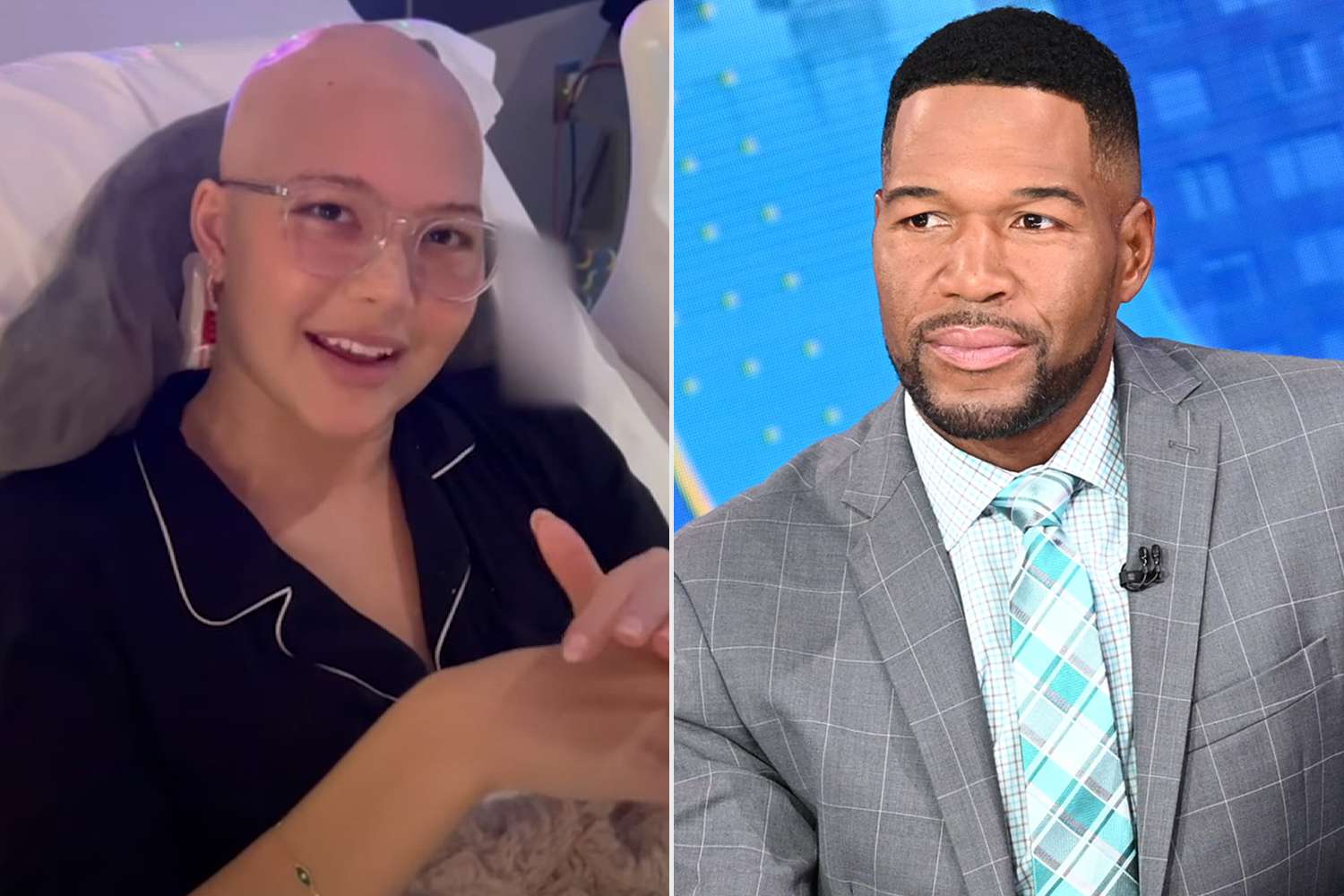
Michael Strahan’s daughter hospitalized amid cancer battle
Michael Strahan’s 19-year-old daughter, Isabella, shares the latest on her cancer battle after spending several days in the hospital: 'I feel like I can barely walk'.
Similar threads
- Replies
- 0
- Views
- 102
- Replies
- 4
- Views
- 426
- Replies
- 11
- Views
- 572
- Replies
- 7
- Views
- 368


